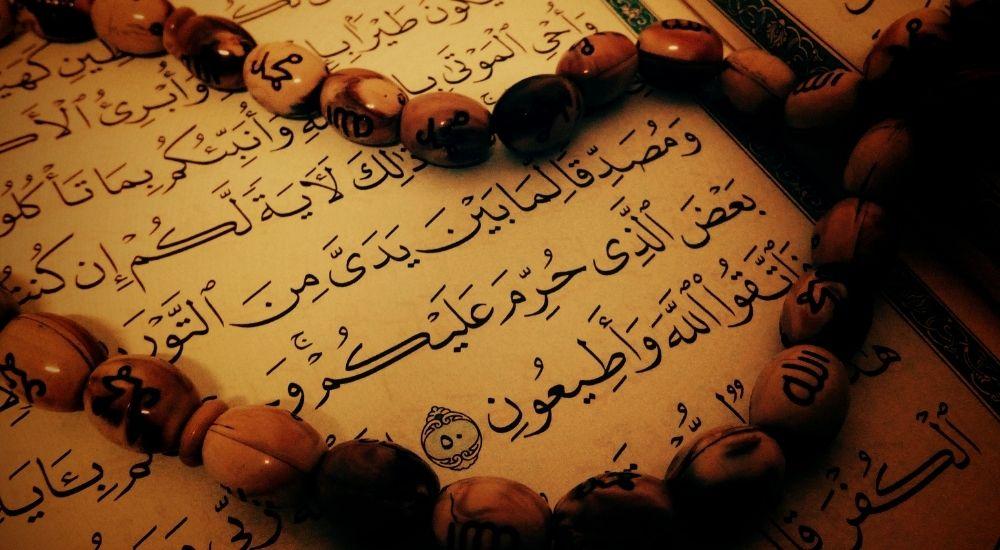
The last 10 days of Ramadan are the days to maximise our time in worship rather than slow down. The Messenger of Allah (SAW) used to increase his worship during the last 10 days more than any time in Ramadan. The significance is that these are the last few days to make the most of Ramadan and because it contains one of the most virtuous nights in the whole year - Laylatul Qadr (The Night of Power).
Laylatul Qadr is mentioned in the Quran by Allah (swt): "The Night of Power is better than a thousand months." (Surah Al-Qadr)
A thousand months are equivalent to over 83 years - an age many will be lucky to live until. Being able to worship on this night could mean that we can increase our reward of a lifetime. Imagine maximising this night and adding a lifetime's worth of worship every year! Potentially, we are gaining several lifetimes' worth of good deeds just this one night alone each year!
The Messenger of Allah (SAW) used to practice I'tikaaf in the last 10 nights of Ramadan and used to say, "Look for the Night of Qadr in the last 10 nights of the month of Ramadan." (Saheeh Al-Bukhari).
This means that we don't know when it is exactly. In another Hadeeth, the Messenger of Allah (SAW) instructed us to search for it on the odd nights of the last 10 days (i.e., 21st, 23rd, 25th, 27th, and 29th). It is commonly expressed that the 27th night of Ramadan is when Laylatul Qadr occurs, but again there is nothing for sure saying that it is on this night.
Not knowing when Laylatul Qadr is, encourages us to seek it rather than focus it on one day alone. I'tikaaf is to seclude oneself from all worldly things, and for men, it is to stay in a part of the masjid and focus only on worship and remembering Allah (SWT) - for the last 10 days of Ramadan. For women, it is to stay in a part of the home away from everyone else and do the same. The Messenger of Allah (SAW) used to do this every year, and the means of it are to engage in worship, prayer, and supplications so that whenever Laylatul Qadr occurs, that night has had a significant amount of worship. Essentially, the one in I'tikaaf never misses Laylatul Qadr.
As we know, each set of 10 days has a theme to it, and the theme of the last 10 days of Ramadan is to seek protection from Hell. In the Hereafter, there are only two camps we can be in - the camp of the people of Paradise or Hellfire. The Messenger of Allah (SAW) has mentioned in a lot of detail regarding the reality of Jahannam (Hell), and Allah (SWT) mentions it throughout the Qur’an. It is something we cannot afford to be even close to let alone inside. We should focus every day on asking Allah (SWT) to protect us from the punishment of Hellfire.
In the last 10 days of Ramadan, we focus our supplications (duas) on asking for Allah's (SWT) protection more abundantly. By being saved from Hell, we no doubt become the people of Jannah (Paradise). How can we do that? Here are some ways to seek the Protection of Allah (SWT) against the most painful punishment.
رَبَّنَآ ءَاتِنَا فِى ٱلدُّنْيَا حَسَنَةً وَفِى ٱلْـَٔاخِرَةِ حَسَنَةً وَقِنَا عَذَابَ ٱلنَّارِ
Rabbana aatinaa fid'dunyaa hasanah, wa fil aakhirati hasanah, wa qinaa adhaaban-naar.
"Our Lord! Grant us the good of this world and the Hereafter, and protect us from the torment of the Fire." (Surah Al-Baqarah)
رَبَّنَآ إِنَّنَآ ءَامَنَّا فَٱغْفِرْ لَنَا ذُنُوبَنَا وَقِنَا عَذَابَ ٱلنَّارِ
Rabbanaa innanaa aamannaa faghfir lanaa dhunoobana wa qinaa adhaaban-naar.
“Our Lord! We have believed, so forgive our sins and protect us from the torment of the Fire.” (Surah Aal-'Imraan)
رَبَّنَا مَا خَلَقْتَ هَـٰذَا بَـٰطِلًا سُبْحَـٰنَكَ فَقِنَا عَذَابَ ٱلنَّارِ
Rabbanaa maa khalaqta haadhaa baatilan, subhaanaka faqinaa adhaaban-naar.
"Our Lord! You have not created ˹all of˺ this without purpose. Glory be to You! Protect us from the torment of the Fire."
اللَّهُمَّ أَجِرْنِي مِنَ النَّارِ
Allahumma ajirnee minan-naar.
"Oh Allah! Save me from the Hellfire." (Sunan Abi Dawood)
Knowing something can significantly change our perceptions and actions. We are bombarded with many different charities, all wanting us to give our Zakat and Sadaqah to them. Our intentions are sometimes focused on the needs of others when we are giving charity, but this potentially means that we are not focusing on the real reason why we need to give charity.
The Messenger of Allah (saw) said: “Guard yourself against the Hellfire, even with half of a date in charity. If one cannot find it, then with a kind word.” (Saheeh Al-Bukhari)
Giving such a small amount, or even saying something nice to someone, is a form of charity! More importantly, linking this Hadeeth to understand that charity protects us from Hellfire should change our understanding of why we give charity in the first place. Is it a means of just fulfilling the needs of a poor person, or is it that we are saving ourselves from Hellfire? No doubt the key thing is that giving charity can become a major benefit for us rather than the recipient. Armed with such knowledge, the next time you give charity, think about how it will affect you in the afterlife.
We pray that Allah (SWT) accepts all our good deeds, forgives us for our bad deeds, and saves us from the Hellfire. Ameen. Donate to ILM to strengthen your relationship with Him.